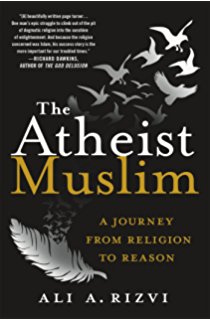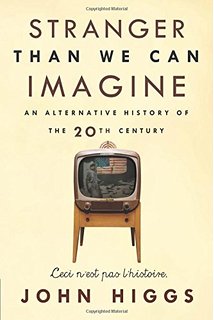ISIS: Do We Stand on the Sidelines?
Brandon Sun, October
6, 2014 - David McConkey
I noted in my last column that we have a very difficult time understanding ISIS. Or even discussing it. Because it involves religion, which tends to be a taboo subject. So, we are engaging militarily with an enemy that we don’t really understand.
For example, how much is ISIS just one part of the larger on-going Sunni and Shiite split in the Islamic world? Islam is a more modern religion than Christianity. So, there is a fear that the Islamic Middle East may still go through the kind of inter-faith wars between Protestants and Catholics that Christian Europe experienced. We hope that the Middle East will someday reach a state of post-religious calm like we see today in Europe. But that day is apparently not now. Furthermore, we could make the situation worse by intervening on one side or another.
Another concern is that attacking ISIS may be just what ISIS itself wants. We see a fanatical group skilled not only at terrorism, but also at public relations. Videos of beheadings of nonbelievers have had an enormous impact. In almost no time at all, we have gone from having never heard of ISIS to demanding that our military strike. But are we being baited? Are we falling into a trap?
The actions of ISIS are horrific. But ISIS is not the only Islamic entity that beheads people for not believing in its religion. The government of Saudi Arabia also executes nonbelievers by beheading. But we wouldn’t want to criticize Saudi Arabia, would we? After all, earlier this year, Canada signed a deal to sell $10 billion in arms to the Saudi regime.
And military action against ISIS may be counter-productive. ISIS could become stronger by our attacking it. The idea that bombing can backfire by actually strengthening an enemy is not far-fetched. It happened in the Second World War. Societies that had their cities bombed emerged battered, but with their will to fight enhanced.
So what should Canada’s involvement be in the ISIS situation? Should we have an expanded combat role and, as the prime minister says, “not stand on the sidelines and watch”? In terms of Canada’s standing on the sidelines, however, Harper is simply wrong. Canada sometimes does stand on the sidelines. More: sometimes to stand on the sidelines is the right thing to do. A decade ago, when the U.S. went to war in Iraq, Canada chose to stand on the sidelines. The Harper government itself took Canada to the sidelines by pulling our troops out of combat in Afghanistan.
Can we try to see a larger picture? In the future, what will we think of Canada when we look back?
In the future, the religious wars in the Middle East may be over. People there may come to their senses and realize that religion is not worth all that killing. Or . . . maybe not. But what about other global issues that we are being distracted from? Other atrocities, certainly. But also long-term concerns like climate change. If the scientists are right, disruption from climate change will be very harmful to the well-being of humanity. Likely much more harmful than the disruption from religious conflict.
In the future, Canada will be remembered for taking action in the Middle East. As one country in the coalition against ISIS. But will Canada be remembered much more for the action not taken on climate change? As the one country that signed the Kyoto agreement – but then later withdrew from it?
International responsibilities? Stand on the sidelines, indeed.
* * * *
See also: ISIS and the Terrifying Power of Bad Ideas
Canadians Must Maintain a Higher Standard in War
Book Looks at Islamic World
Book Provides Intriguing, Scientific Glimpse into State of Religious Beliefs
Many Changes in the World Since 2001 Terrorist Attacks
QUICK CONTACT:
David McConkey,
Brandon, Manitoba
Send me an email
My Sites / Interests
- Citizen Active
- Columns
- The Great War
- Live Well, Do Good
- Manitoba History
- Obituary Guide
- Reviews
- The War on Drugs
Some Reviewed Books:
The War on Drugs:
A Failed Experiment

The Atheist Muslim:
A Journey from Religion to Reason

Stranger Than We Can Imagine:
An Alternative History of the 20th Century
Heretic:
Why Islam Needs a Reformation Now
Islam and the Future of Tolerance:
A Dialogue

Extraordinary Canadians:
Nellie McClung

The Greatest Show on Earth:
The Evidence for Evolution



